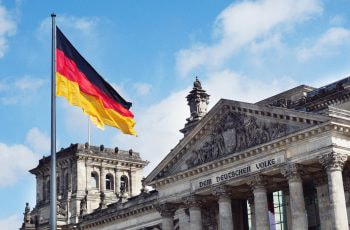Camelot Generates Record Lottery Sales
Camelot, which operates the National Lottery, has revealed record sales over the last year. It’s good news for Camelot, as these figures will put it in good stead to retain control of the franchise, which is up for renewal soon. Camelot has also pledged to contribute £600 million to help charities impacted by the COVID-19 pandemic.

On average, the National Lottery creates a new millionaire in the UK every day. ©Cottonbro/Pexels
£600 Million to Help Charities
Camelot has just published its results for the last financial year, showing record sales and a third successive year of sales growth. During this period, it reported that ticket sales grew by almost 10%, reaching £7.9 billion. It also boosted its returns to Good Causes by 12%, to £1.85 billion.
The National Lottery’s Good Causes raises money for charities across the UK. Due to the coronavirus pandemic, British charities have been under increased pressure over recent months. The National Lottery is offering funding of £600 million to support affected charities and organizations through these difficult times.
“Thanks to this crisis relief package, hundreds of millions of pounds in vital funding has been repurposed to help those most affected by the coronavirus pandemic – providing, among other things, much-needed aid for communities, grants for sport initiatives to keep people fit and healthy, and assistance for thousands of other projects that are in desperate need of funding during this time. Anyone who has bought a National Lottery ticket should know they’ve played their part in making this possible.”– Sir Hugh Robertson, Chairman, Camelot
The National Lottery generates more than £30 million each week for Good Causes. Since it’s launch in 1994, it has raised over £41 billion for Good Causes in the UK and offered funding for over 565,000 separate projects.
“Three years on from our strategic review, we are seeing growth across all areas of the business. Crucially, our best-ever sales performance has delivered a £200 million boost to Good Causes at a time when the UK needs it most.”– Nigel Railton, CEO, Camelot
However, critics argue that the National Lottery’s contributions to Good Causes are too small compare to its annual revenue. Criticism of Camelot has been ongoing since the Ontario Teachers’ Pension Plan purchased it for £389 million in 2010. The idea of profits being diverted to a Canadian organization over UK charities has been a particularly sticky wicket.
It has been 25 years since the National Lottery was first launched. During this time Camelot has fended off the competition, winning three successive licenses. Camelot’s current license will run out in 2023, although Rothschild & Co have already been tasked with engaging interested parties in the competition for the next license. Camelot’s license was due to expire in February 2023, but has been extended to August 2023.
Camelot has said that it will compete to hold on to the license, and these latest figures will strengthen its bid. However, the current license-holder could face stiff competition. It is expected that Richard Desmond, former owner of the Daily Express and founder of Northern and Shell will put in a bid. He also launched the Health Lottery in 2011, which donates roughly 20% of its turnover to charity.
Czech gambling firm Sazka is also expected to enter the competition. Wealthy businessman Karel Komarek founded Sazka Group in 2016, which has since grown to become the largest lottery owner in Europe. Valued by Forbes at an estimated $3.6 billion, Komarek is one of the richest people in the Czech Republic, and is ranked in 648th place on the Forbes rich list.
Most notably, Sir Richard Branson has submitted bids for the license each time it has come up for renewal, although this year Branson has had to withdraw his lottery bid to focus on protecting his existing Virgin assets during the pandemic. Branson courted controversy last month when he attempted to leverage his Caribbean island for a government bailout to save his Virgin Atlantic Airline.
Another Life-Changing Win
Over the last year, the lottery has made 355 new millionaires. Last October, the highest ever sum of £170 million was won on a Euromillions jackpot. On average, the lottery makes a new millionaire every day, and since 1994, it has created over 5,700 winners of £1 million or more.
Most recently, an electrician from Coventry has won a life-changing £1 million on the Euromillions lottery. Simon Waddup, aged 31, has been unable to work for the last year due to ill health. Waddup says that a rare blood disorder and a faulty heart valve have held him back, but the win will now help him to achieve his lifelong ambition of renovating old properties.
“For as long as I can remember I have wanted to buy old properties, do them up and build my own portfolio. Friends and family laughed at my dream, especially when I was a teenager.”
Waddup initially studied Design Technology and went on to work on building sites and train as an electrician, with the hopes of realizing his dream to do up old houses. Frequent spells in hospital over recent years cast doubt on these hopes, and have stopped him working altogether since last summer.
The electrician’s lucky win came not long after he tried out Euromillions for the first time in May. Waddup says that he is looking forward to celebrating his windfall properly with family. “Due to coronavirus, I can’t celebrate with my family and I can’t wait to see people and talk about the win – I will definitely be treating my family”. Waddup also plans to take his ten-year-old daughter on her first holiday abroad.



